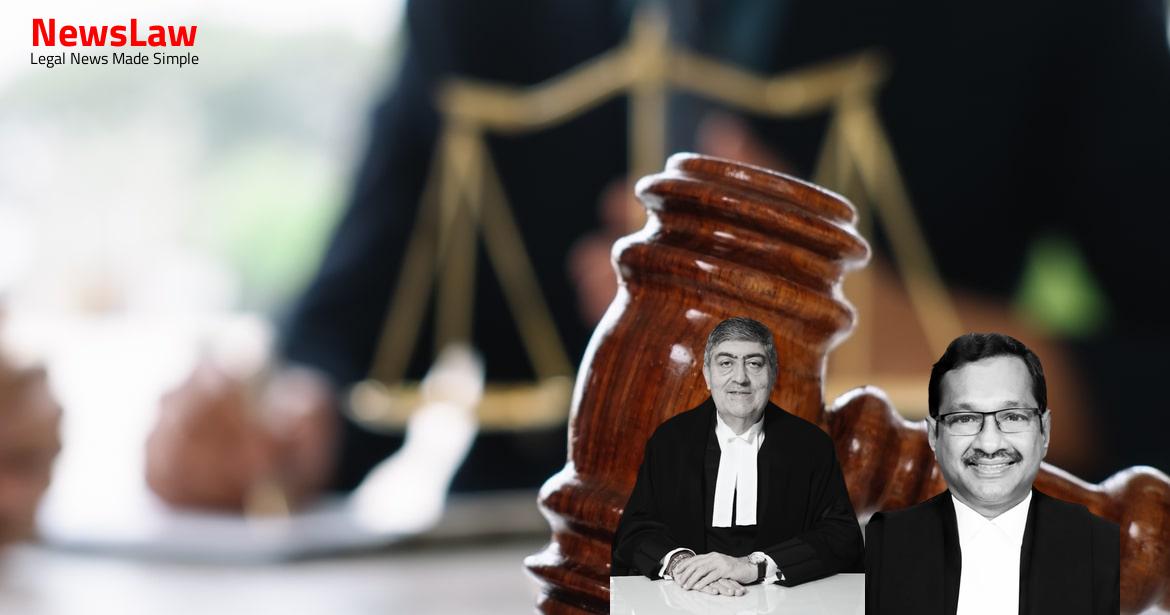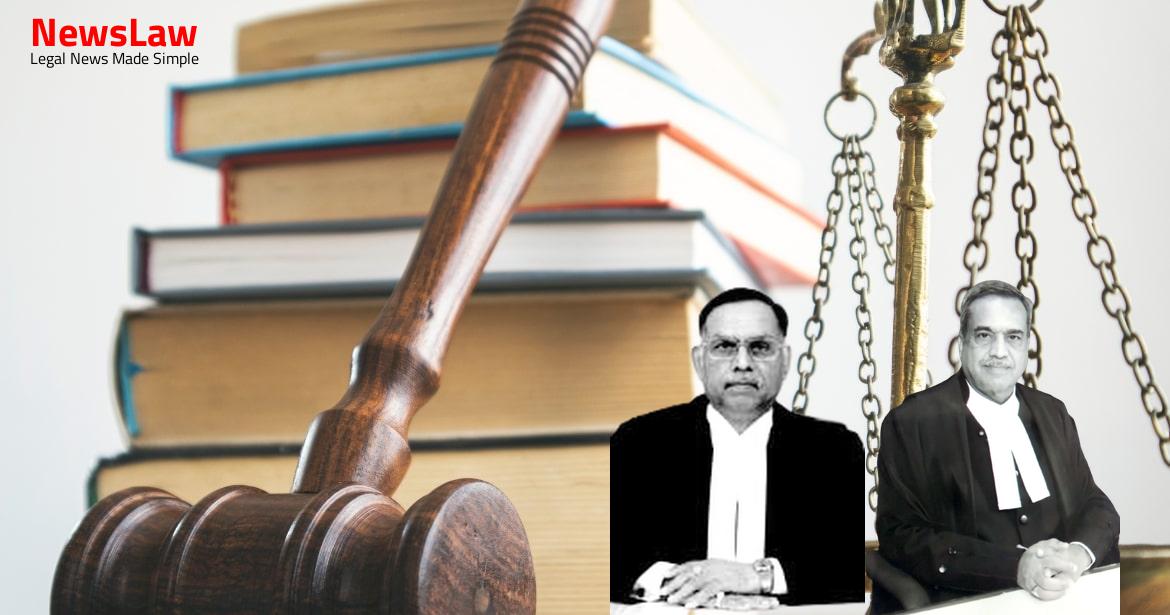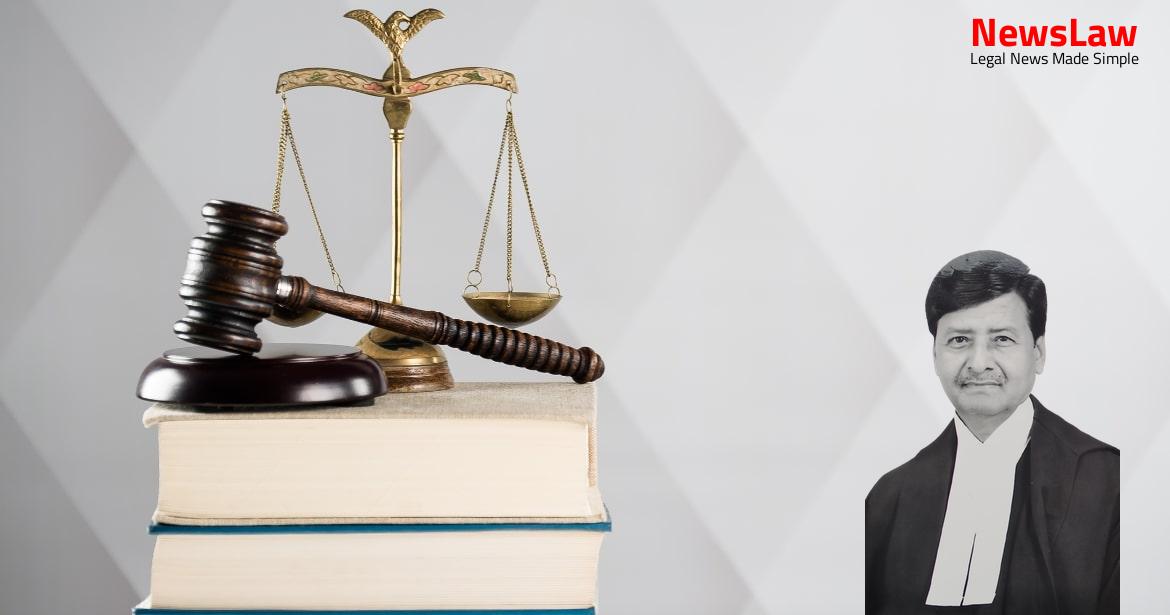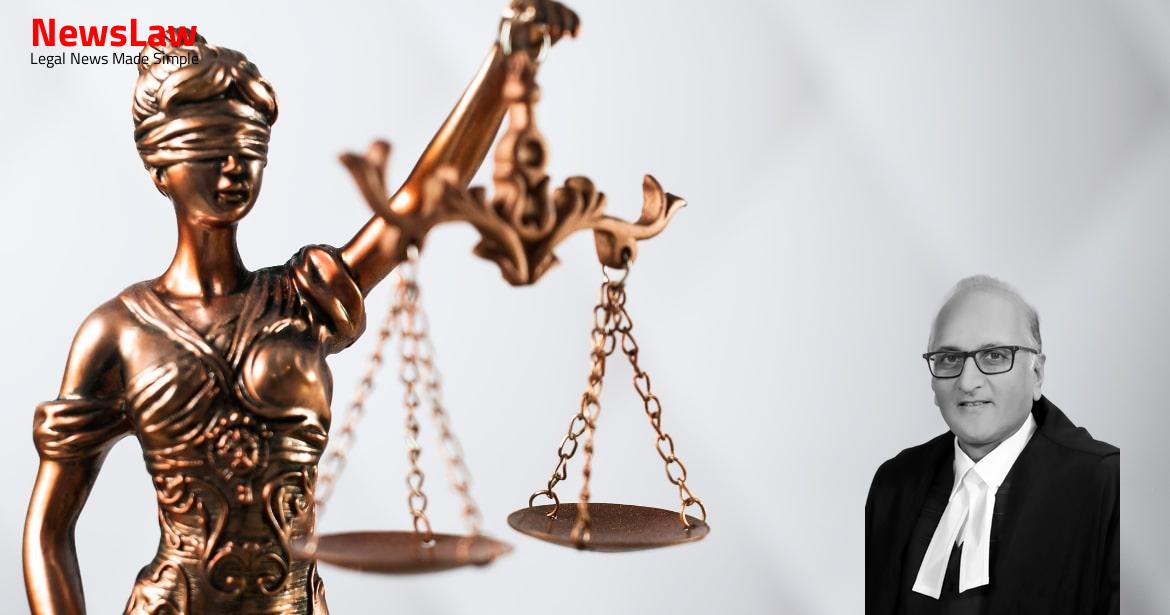Dive into the court’s detailed legal analysis regarding contempt jurisdiction and willful disobedience in a recent case. The focus is on the essential elements required to prove willful disobedience, emphasizing the need for deliberate and intentional conduct with full knowledge of consequences. This analysis sheds light on the complexities of contempt proceedings and the threshold for establishing charges within the legal framework.
Facts
- A Special Leave Petition (Civil) No.10538 of 2010 was filed by the Board against the order punishing the appellants for a contumacious act.
- The Special Leave Petitions filed by respondent no.1 challenging the original order of the Division Bench were taken up as Civil Appeal Nos. 9655-9666 of 2013.
- An order dated 29.09.2021 was passed after the petition was granted leave and registered as Civil Appeal No. 9656 of 2013.
- The Act under debate was repealed by an ordinance issued on 13.07.2020, with a subsequent Act put in place to replace it.
- The appeals were rendered academic due to the act’s repeal, leading to the disposal of civil appeals accordingly.
- Pending applications were also disposed of.
- Contempt petition filed in Contempt Case (Civil) No.401 of 2008 alleging orders passed by Division Bench were not scrutinized while levying cess.
- Court issued notice in appeal filed by Board, holding that disputed questions, including refunds, cannot be addressed in writ petition under Article 226.
- Constitutional validity upheld, deeming fiction applies only where trader fails to prove direct evidence of transactions outside market area.
- Assam State Agricultural Marketing Board allowed to collect tax as per Division Bench’s judgment of 12.9.2008, unaffected by contempt proceedings’ order of 23.10.2009.
Also Read: Supreme Court Judgment on Single Till Mechanism for HRAB Calculation: A Comprehensive Analysis
Arguments
- Appellants relied on several decisions of the Supreme Court.
- The decisions referred to include Ashok Paper Kamgar Union vs Godha and Ors. (2013) 11 SCC 1, Kapildeo Prasad Sah and Ors. vs State of Bihar (1999) 7 SCC 569, Dinesh Kumar Gupta vs United India Insurance Company Ltd. and Ors. (2010) 12 SCC 770, Anil Ratan Sarkar and Ors. vs Hirak Ghosh and Ors. (2002) 4 SCC 21.
- These decisions were cited in support of the appellants’ arguments.
- The learned counsel for the respondents argued that the press release, coupled with the subsequent inaction of officials under the appellants, indicates a deliberate attempt to bypass court orders.
- Evidence was presented to support this claim.
Analysis
- The High Court erred in delving into the facts and evidence instead of leaving it for the executing Court to address.
- Knowledge is crucial in contempt orders.
- Willfulness disappears when two views are possible, as it involves a mental element.
- A higher official cannot be held accountable for a subordinate’s actions without knowledge.
- Parties are allowed to pursue their claims in execution or other proceedings as per the law regarding the matter at hand.
- Contempt action should not be taken in the absence of intentional violation or willful disobedience.
- Imposing contempt sentences based merely on probabilities is inappropriate.
- The High Court exceeded its jurisdiction and refrained from exercising it even under Article 226.
- Contempt jurisdiction should not be used for obtaining compensation disputed on grounds of ownership and fraudulent practices.
- A deliberate, conscious, and intentional act is necessary for establishing willful disobedience.
- It is essential to exhaust alternate mechanisms before approaching court under the Contempt of Courts Act.
- Deliberate attempts to bypass court judgments, with the adequate knowledge, are not permissible.
- There is no connection between the appellants and the alleged actions of their subordinates.
- Complex factual questions should be left to be decided in appropriate proceedings, not contempt cases.
- The respondent has shown that no damage, especially permanent damage, was caused to the suit property, leaving room for further pursuit of claims in execution or other proceedings.
- The concept of vicarious liability does not apply to contempt jurisdiction.
- Given subsequent developments, the appeal deserves to be allowed due to lack of willful disobedience.
- Presuming claimants’ entitlement to compensation, they can recover it through execution of the award, subject to contestation by the State.
- Contempt action was unjustified in the absence of willful disobedience.
- Civil contempt is defined as willful disobedience of a court decision.
- Courts should not conduct a broad inquiry beyond the contested judgment in contempt cases.
- Proof beyond reasonable doubt is required in quasi-criminal contempt proceedings.
- Aggrieved parties cannot compel the court to exercise contempt jurisdiction as it pertains to the contemner and the court.
- The weapon of contempt should not be misused and must be done with a bad purpose or without justifiable excuse.
- Wilful act is different from careless, thoughtless, or inadvertent acts, requiring deliberate and intentional conduct with full knowledge of consequences.
- Contempt proceedings are not maintainable if there are compelling circumstances making compliance impossible.
- Committal or sequestration will not be ordered unless contempt involves a degree of default or misconduct.
- Negligent or involuntary acts are not considered wilful in contempt proceedings.
- The element of willingness is essential to establish a charge within the meaning of the Act.
- The appellants claim they did not violate court directives.
- Question of whether drivers showed court order is for adjudication, not contempt jurisdiction.
- Respondent no. 1 filed special leave petition despite not being satisfied with High Court order.
- Communications do not mention court order violation.
- Subsequent developments benefit the appellants.
- High Court’s exercise not warranted; aggrieved could seek alternative remedies.
- Vicarious liability not applicable in contempt case.
- No evidence of appellants’ knowledge or collusion in subordinates’ actions.
- Members of respondent no.1 could challenge cess levy before committee.
Also Read: Selection and Appointment of Judicial Officers in Himachal Pradesh
Decision
- The appeal filed by the appellant nos. 2 to 4 has been allowed.
- The order passed by the High Court on 23.10.2009 in Contempt Case No.401 of 2008 has been set aside.
Case Title: DR. U.N. BORA, EX. CHIEF EXECUTIVE OFFICER Vs. ASSAM ROLLER FLOUR MILLS ASSOCIATION (2021 INSC 671)
Case Number: Crl.A. No.-001967-001967 / 2009



